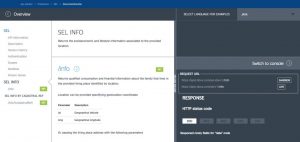Today more than ever companies rely on the opinion of consumers, and this is something particularly important for new business. Not long ago, a wrong action could be forgotten, but now there will always be a tweet or an online review that will endure over time and remember our clients, or potential clients, about that mistake we made. For this reason, enhancing the online reputation of our business will enable us to strengthen our weaknesses. You have to adapt to change and be aware that one-way business communication no longer exists.
With new technologies we can collect all kinds of data: type of comments, their scope, keywords, who are the opinion leaders, etc. Besides knowing the opinions about our company, another advantage of being able to monitor all these variables is that we can also know what people say about our competitors. There are multiple tools to monitor these factors, but the key to success is their interpretation and further analysis: being able to turn information into knowledge in order to generate a positive impact on the progress of the business.
Key variables for a good reputation analysis
– What is being said. The first step is to find out what is being said about your company. It is important to know the type of comments made about your brand. For example, if they are complaints, reviews, news, etc. Not by having a greater number of mentions you have a better online reputation, so take your time to study them.
– Who says it. Once you know the content, the second step is to know the source. That is, you have to find out the average profile of the groups or the individuals who talk about your company. Identifying them will help you achieve a streamlined and more effective communication, obtaining wider dissemination.
– In what medium or platform. The place where you choose to publish the information about your business is as important as the source. Obviously, not all media have the same target, so it is necessary to understand what kind of publications are talking about you and your competition. As a result you can see if the social networks you use are the same used by consumers. In addition, certain blogs have a lot of weight among users, so it’s worth identifying them.
– When. The peak hours of comments (both high and low) also have to be taken into account, as a way to detect if there is an immediate reaction to your publications or the answers are more continuous and stable over time, or if users value your business when it's your anniversary or it’s something that goes rather unnoticed, etc.
– Types of comments. Analyze carefully negative comments. Many companies tend to discriminate the percentage of positive, neutral and negative comments without getting nothing more than a cold statistic. But it is important to understand who are those who are talking negatively about you, in what media and why.
In short, you need to know very well the voice of the customers. One of the key (and complicated) aspects is to actually know what matters to them, what they expect from us, what would they like to see in our website, what bothers them, or why they come to us. A good way to find this out is launching regular surveys in your website and using Google Alerts, a tool which monitors all the comments mentioning your company and that allows you to react quickly to any potential image crisis. If we consider all of the above we should already have a clear idea of what is our reputation and act accordingly.
A good example to follow
If you want to take note of business that have been able to manage successfully this online communication area, study companies like Disney, L'Oréal or Lego, who lead the ranking of the 20 brands with the best corporate reputation. However, we would like to highlight here one example: the Meliá Hotels group.
Meliá Hotels International won last year the Tripadvisor Certificate of Excellence in some of the hotels of the seven brands that the company operates in 22 different countries. This is a recognition awarded to the best rated hotels according to the reviews and opinions of travelers posted on Tripadvisor. In Spain, the Certificate of Excellence has been obtained by all the Gran Meliá luxury hotels.
Much of the success of Meliá Hotels is due to a strategy implemented with the support of the ReviewPro software to proactively manage the group’s online reputation and promote improvements in the departments of operations, sales, marketing and service quality. This tool detects and analyzes the opinions of users throughout more than 45 internet sources, processing the results to know the satisfaction level of each hotel as well as the overall level of satisfaction of the company, its brands and its competitors..

























